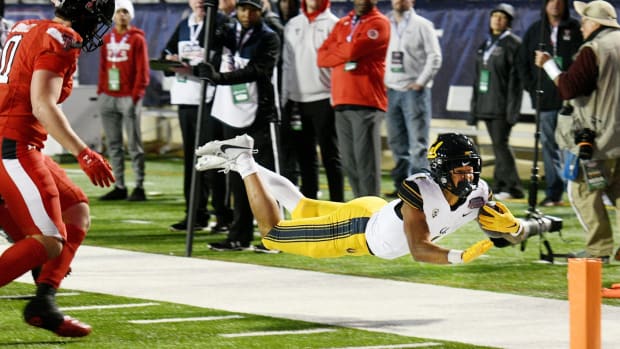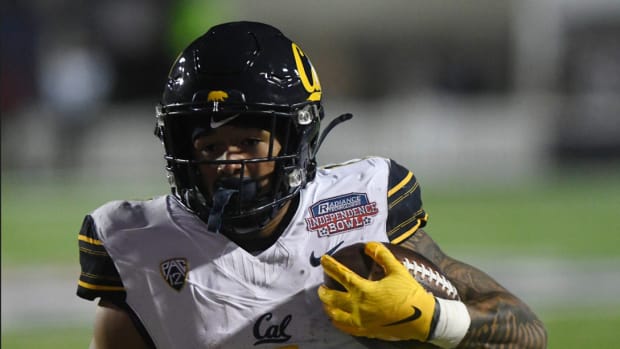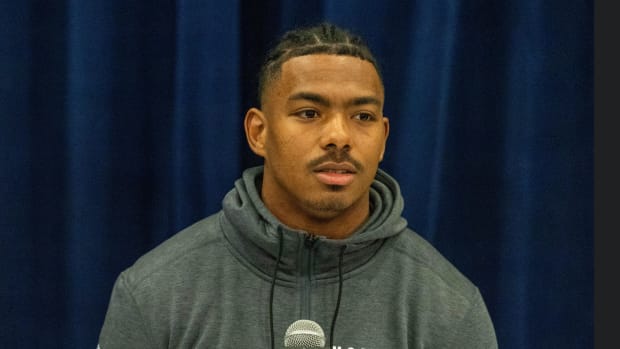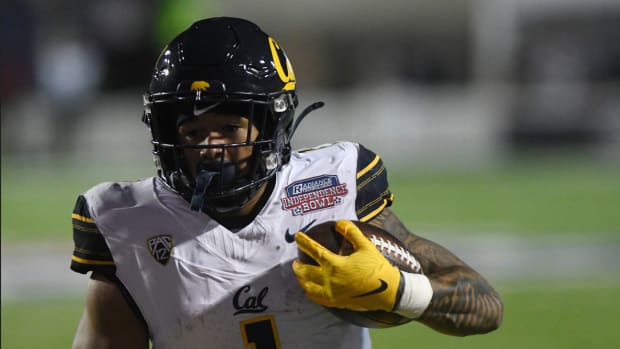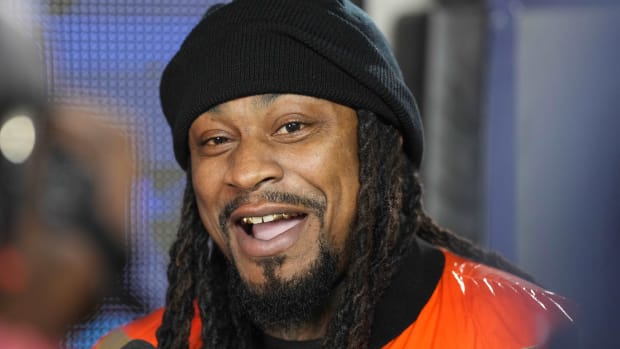Cal Football: #WeAreUnited Movement Helped With 2020 Pac-12 Season Liftoff
The Cal football team will make its 2020 season three weeks from today — Nov. 7 at home against Washington. And senior tackle Jake Curhan believes it’s happening, at least in part, because players used their voices to create the #WeAreUnited movement.
“I think there’s a tremendous impact. I don’t know if we have the health guidelines we currently have in the Pac-12 if the players didn’t say something,” said Curhan, one of Cal’s spokesmen in the coalition of players from throughout the Pac-12 Conference.
The players announced their demands in early August, threatening to boycott the season if their concerns weren’t addressed. It was a long list, but standing above the rest were the COVID-19 pandemic and social justice.
Barely a week after the #WeAreUnited group unveiled its demands, the Pac-12 postponed the fall season because of the pandemic.
The league did an about-face in late September, reinstating a shorter, late-starting fall season on the heels of announcing it has arranged for daily rapid-response testing of athletes.
*** Offensive lineman Valentino Daltoso talks about the #WeAreUnited movement:
“Stepping back and looking big picture, it made a lot of difference,” said offensive lineman Valentino Daltoso, another of Cal’s #WeAreUnited leaders. “I think it was really cool having peers across the conference come together and asking of our institutions and the conference what we wanted to see.
“And I think you saw a response from the conference. We asked directly for daily testing and the Pac-12 delivered. I think that’s awesome.”
Cal defensive back Josh Drayden, also involved with the movement, agrees, "Initially, in the summer, I think it played a big role in getting us back to playing football," he said. "I think it helped shed a light for the whole conference on the safety protocols."
Curhan and Daltoso watched with interest as players across the country began to more often speak up. Mississippi State running back Kylin Hill used Twitter to threaten to sit out the season unless the state flag were changed. It happened.
Curhan is not surprised by the leverage players have found they own.
“I knew people would pay attention. It became pretty clear because racial justice is obviously something that’s been a huge problem, as well as the pandemic,” he said. "You saw with Kylin Hill, the Mississippi State running back, he essentially got them to change their flag. Or at least he was the last straw in doing so.”
*** Josh Drayden talks about where racial justice fits into the #WeAreUnited platform:
Drayden is looking forward to Nov. 7, but said football isn't the only thing that matters.
"Social justice is an issue that's far more important than football," he said. "We're doing stuff to help with that situation and . . . let people know we haven't forgotten. I know a lot of people on our team feel just as strong about football (as) they do with social justice.
"We're preparing for football, but we're never going to diminish or forget about what's going on in the real world."
The movement grew.
Sen. Cory Booker (D-N.J.), with support from Sen. Richard Blumenthal (D-Conn), on Aug. 13 sponsored a College Athletes Bill of Rights bill that addressed the players’ concerns.
“I’ve been on calls with the governor’s office. People in places of power took a lot of notice,” Curhan said. “I think the long-term impact of what we were able to do, putting our voice out there, is definitely going to be felt.”
Those closer to home also listened, Daltoso said. He pointed to athletic director Jim Knowlton and coach Justin Wilcox. “I thought that was all really positive,” he said.
Curhan said NBA star LeBron James is the most prominent example of how an athlete can move the needle with his voice on social media. But he believes other athletes, including those far less famous, can make a difference.
“The platform is definitely there,” Curhan said. "What’s difficult is convincing people that they do have that platform or that they are in a position where they are able to speak. People are afraid to be the first person or people alone, but when everybody sees that people are going through similar problems and they’re in a position that they can help it creates a cool kind of unity.”
That lesson can be an important legacy of the #WeAreUnited group, Daltoso suggested.
“I think it showed a lot of people that athletes' voices, when guys come together, it can be pretty powerful,” he said.
.
Follow Jeff Faraudo of Cal Sports Report on Twitter: @jefffaraudo
Click the "follow" button in the top right corner to join the conversation on Cal Sports Report on SI. Access and comment on featured stories and start your own conversations and post external links on our community page
